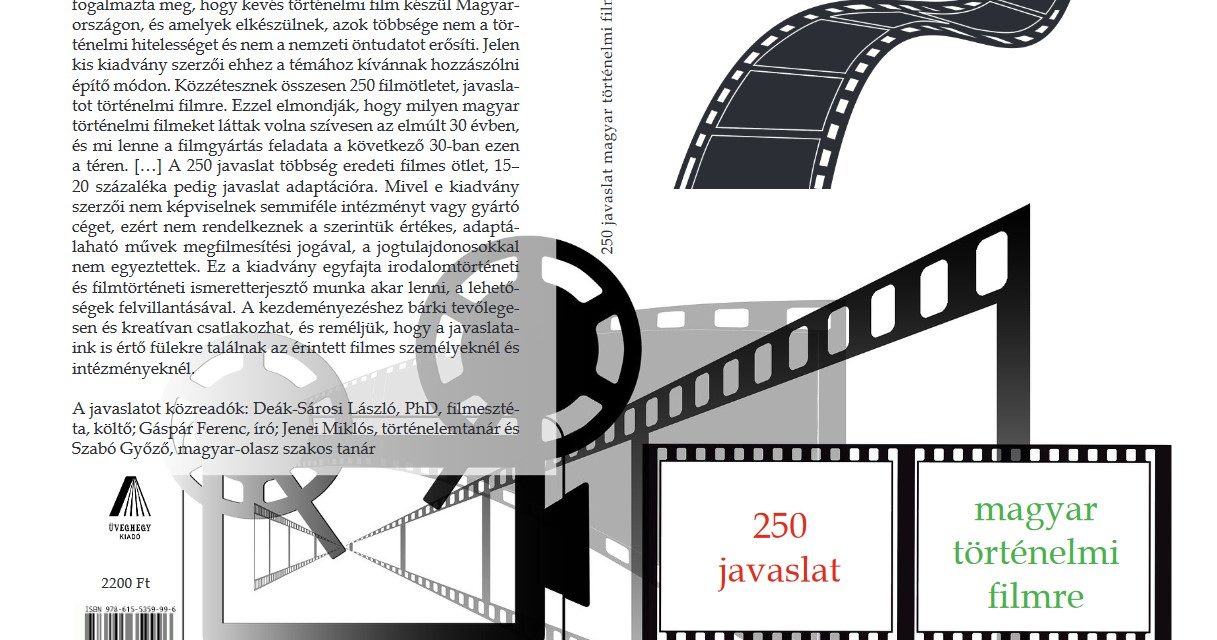There are many Transylvanian themes in the book 250 suggestions for Hungarian historical films. A few days ago, a booklet of only one hundred pages was published, which contains a total of 250 film ideas from four authors.
A film esthete, a writer and two high school teachers believed that this time it is not a criticism of domestic films that present historical themes in a superficial or ideologically distorted manner, but rather a nice outline of what they would have liked to have seen on the cinema screen in this genre since the regime change; and what events and personalities they think would be uplifting for the Hungarian nation in the next three decades.
Readers have already come across László Deák-Sárosi's Ferenc Gáspár's historical novels and novels of his youth are enjoyed by many. It is very fortunate that this occasional creative group was joined by Miklós Jenei (who wrote almost half of the film ideas, historical films, 120 by the count!) and Szabó Győző , who together with his colleague was able to assess it very well over the years , which historical topics are of interest to the students, and how the treasury of national memory could be brought even closer to them.
The 250 ideas encompass one or more stories of the most important events and personalities of Hungarian history from prehistoric times to the present day, and the reader can even find a glimpse or two into the future in the pages of the book.
Of course, there is no Hungarian history without the history of Transylvania and Székelyland, and such topics appear prominently among the proposals.
In 907, the Székelys fought on the side of Árpád in the battle of Bratislava, in 1346 they defeated the Tatar general and his army, between 1579 and 1581 Mózes Székely put Ivan the Terrible to death, in 1848 Bem's Transylvanian army defeated the emperors, after 1914 the 82nd cs. and who. The soldiers of the infantry regiment stand tall on the Eastern, Romanian and Western fronts.
Of course, stories are not only about battles and victorious battles, but also about learning failures and successful life journeys.
The variously selected stories of events and personalities outline the history of Hungary and Transylvania. In addition to our own ideas, dozens of literary adaptations were also suggested, including the works of several authors from Transylvania and Székely, such as Józsefé Nyirő, Ároné Tamási and other post-1945 and contemporary authors.
Source and image: erdely.ma













